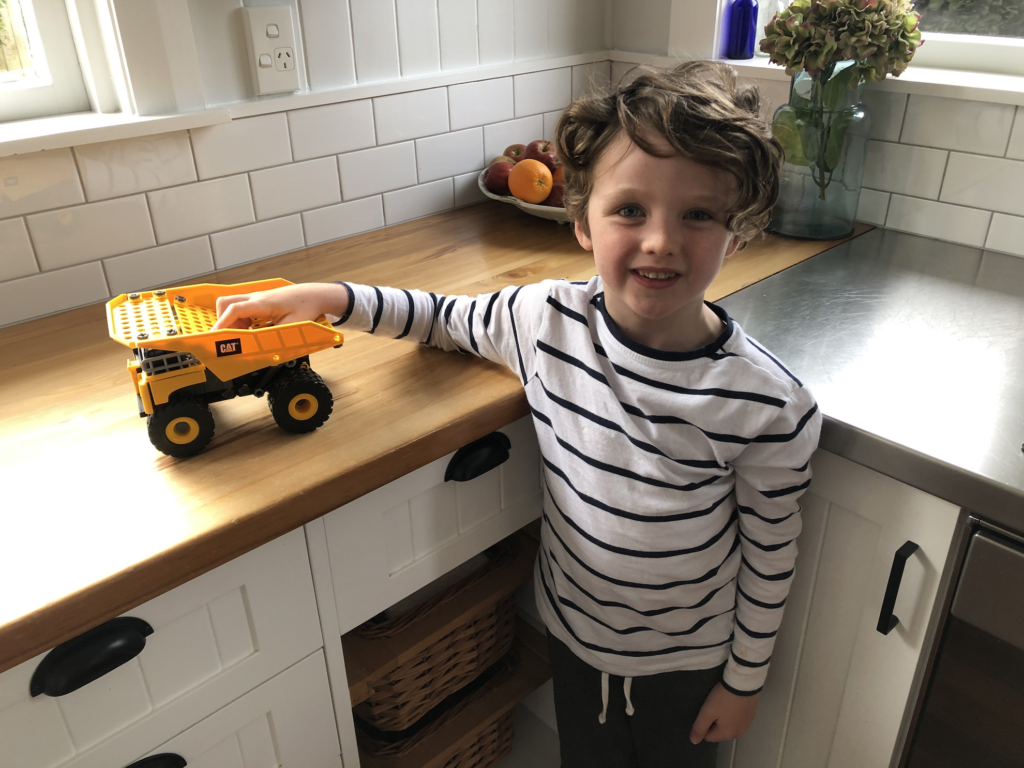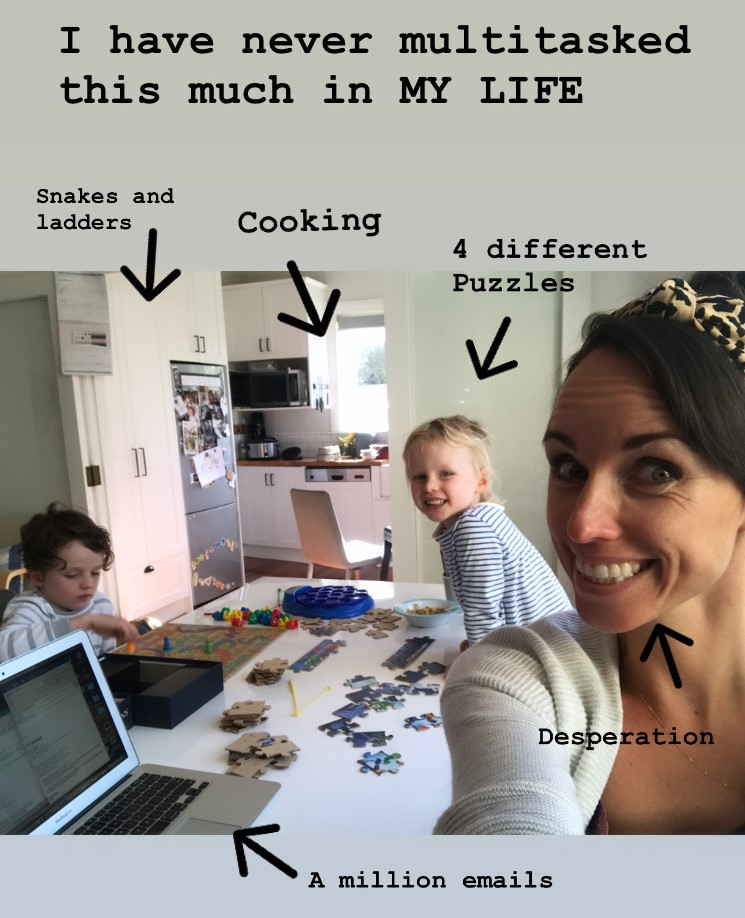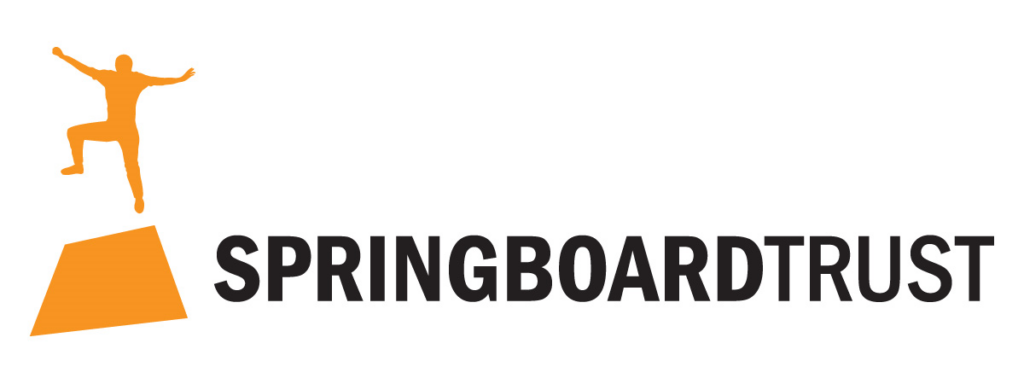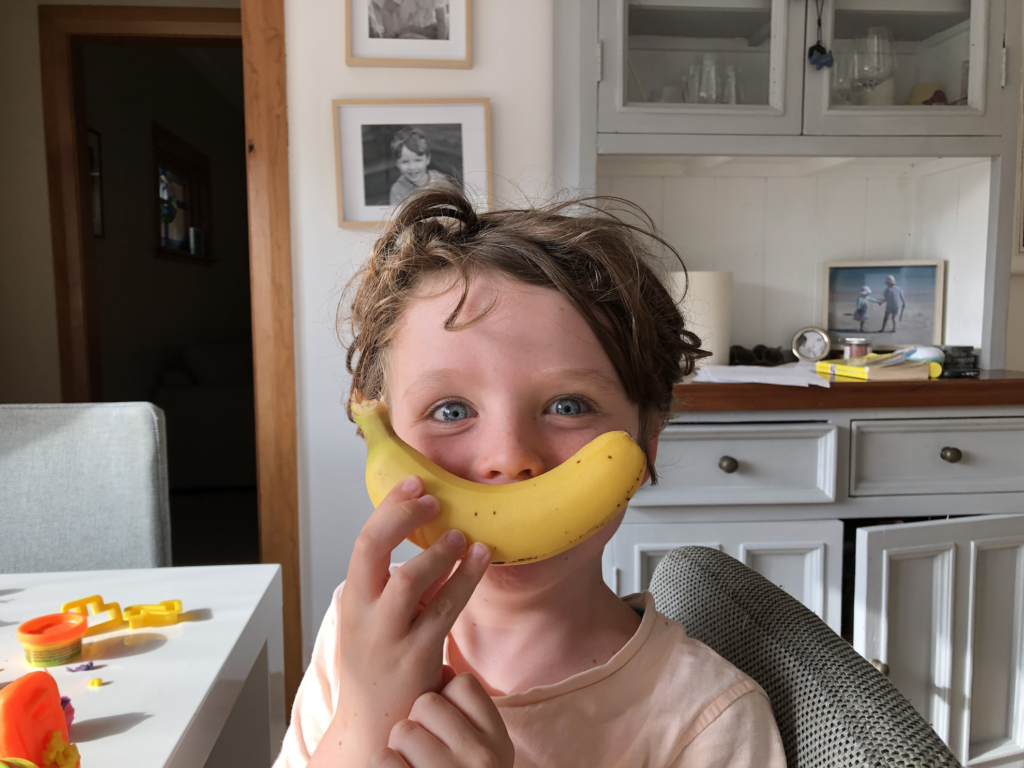
Bringing the learning home
Prior to COVID-19, just 3,597 families home schooled their children. Of course, in the last few months that number has skyrocketed, with parents assuming multiple roles – parent, worker, teacher, friend, playmate – often simultaneously.
For Sven, the unstructured approach to home schooling has been both necessity and a challenge.
“I definitely wouldn’t recommend doing it the way we did – but it was the way we had to do it.”
“We both have full time jobs with clients who needed support as much as possible, and we both have that desire to do our best for them during this time. It meant a lot of pressure, largely driven from within, which we were then balancing with spending as much time as possible with our 6yo boy and 3yo girl.”
“Our home schooling, we weren’t super disciplined about it – the most important thing for my wife and I was to connect as meaningfully as possible with our kids.”
Under the view that the lockdown would not be a long-term situation, Sven and his wife set about creating fun, creative educational situations for their children without focusing on a structured routine.
“A big highlight was taking the training wheels off my son’s bike, and riding with him around Khandallah. There’s a really great community of families, of kids saying hello and social distancing and being together, even if they’re apart. Just getting outside and exploring our local environment with fresh eyes was important for us.”
“And my daughter – spending time like this, you see so much more about what makes them tick. I didn’t realise how wonderful she was at role playing, singing and at inventive games. You learn so, so much more about them in this situation and by letting them entertain themselves a bit more than normal.”
“It’s only by being there every day and seeing those things, what they learn and what they’re good at, that you can step in and do a better job of being a dad.”
Challenges and boundaries
But with that deeper, more constant connection came a challenge all parents will be familiar with under lockdown – maintaining work-home boundaries.
“I’ve never had so many plates spinning at home before,” Sven notes, “you deal with the kids urgent needs, and your work’s urgent needs, then you try to find moments to focus on being a family – it leaves no time for yourself.”
“We’re extremely fortunate to be in the situation we are in, but regardless it’s been hard in a bubble with full time jobs and full on little ones.”
With no time to himself and resigned to a single building (“which has been absolutely dominated by the kids”), Sven turned to cooking as a focal point.
“Before this, I didn’t cook nearly enough – I wasn’t home in time – so I decided that I would do it every night while we’re all here. It makes a nice daily focal point for the family. We do all sorts of cheesy things, asking the kids what their daily highlights were, that sort of thing, to connect. We’ve all loved that time, coming together after a busy day”
Of course, it’s back to work for Sven and his wife after dinner – but even a single family meal can form a critical touchstone with so much chaos going on around us.

Returning to school – lessons learned
Acknowledging, of course, that Sven already has a deep appreciation for the work principals and teachers do (“Springboard Trust volunteering is the most wonderful contribution I get to make”), there was still a lot he learned from his home schooling stint.
“We know all about the role schools play in developing great humans – but this has really hit home how big a role they also play as a nucleus, as a driver of better communities.”
“My kids are gagging to go back – to see their friends, teachers, just to be a part of school as a community – it’s such a massive part of their identity at that age.”
On top of that, there is a more practical role that Sven admits he hadn’t thought of before.
“I never really appreciated how much of an enabler school is for working families. Increasingly, it takes two people working in a household to live a comfortable life – and that’s impossible without schools.”
And finally, the understanding of just how exhausting it can be to teach or manage a school.
“Normally I’m in a workplace of adults, who have a very different set of demands to kids. Once one of ours has an idea, they want to communicate it and engage with you directly and immediately.”
“They can immediately tell if you’re not fully present too – they will not suffer fools!”
“I hadn’t thought about that aspect before. I imagine it’s hard for teachers to get things done, keep learning and engagement on track for a class of 20 children, all of whom have needs and want them met right then and there.
That’s probably the biggest eye-opener for me.”
With home schooling done (for now) and a routine on the horizon, Sven is excited for what comes next – but not without some sorrow.
“Our kids are such remarkable, resilient little creatures and having so much time together as a family has been wonderful.
The kids have missed school and kindy, for sure – but it’s been replaced with something really new and interesting. I’m sure they’ll be old enough to remember ‘lockdown’ into their futures and I hope they remember our family time with fondness.”
As Sven can attest, Springboard Trust volunteers have busy schedules at the best of times – let alone in the middle of a pandemic and public shutdown. But it is in times like these that coming together and supporting communities can be most rewarding.
“The cohort I’ve been working with – it’s been like a beacon of hope, of people coming together who are experiencing similar challenges. Empathy is built in the trenches, and I’m glad I can do my part.”









